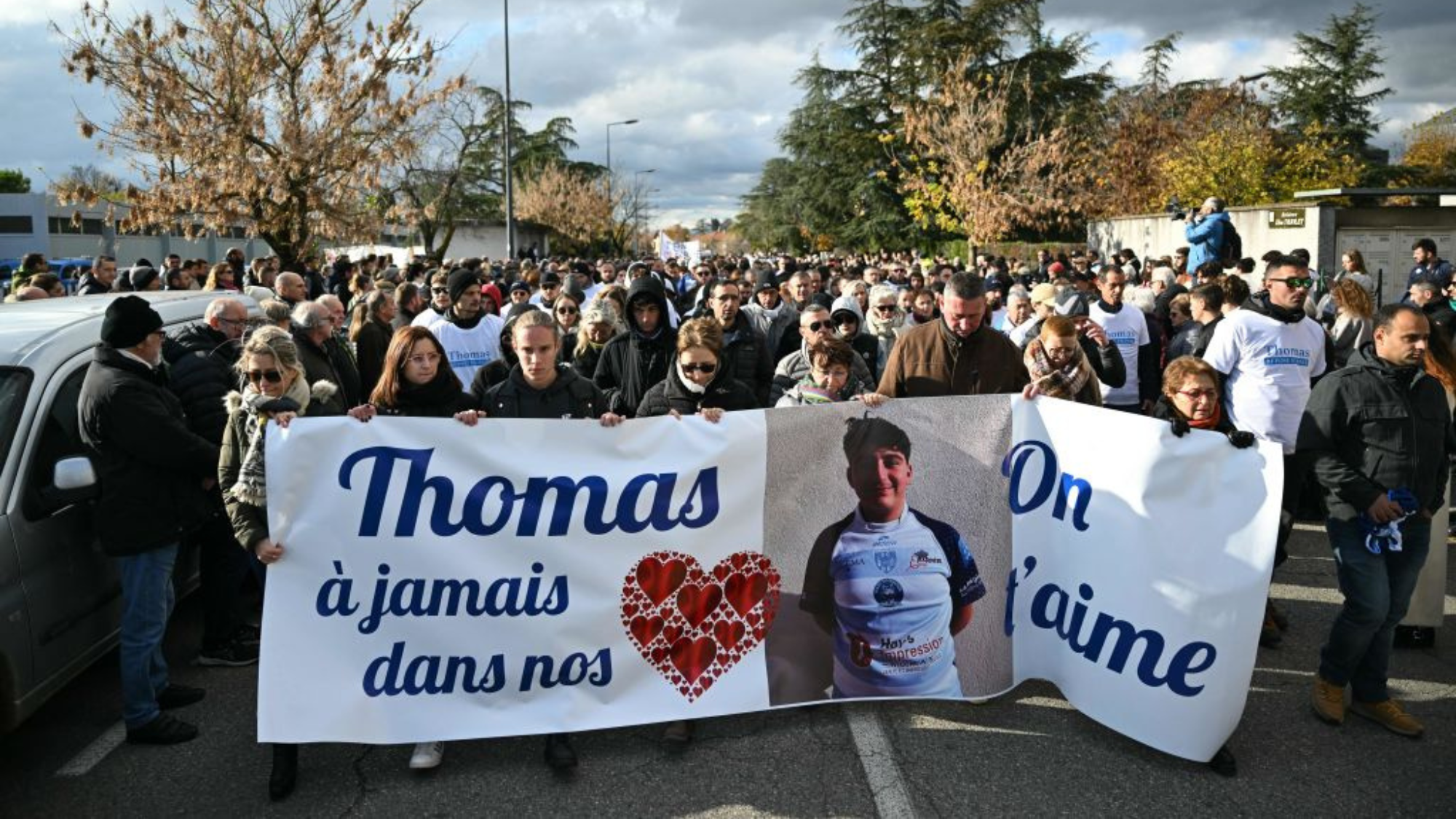Death in rural France: a murder that inflamed a nation

A free daily email with the biggest news stories of the day – and the best features from TheWeek.com
You are now subscribed
Your newsletter sign-up was successful
The murder of a white teenager three weeks ago at a village dance party in rural France has exposed in the most horrible way the deep divisions that are rarely far from the surface in modern France, said Bartolomé Simon in Le Point (Paris).
The 16-year-old, named only as Thomas, was stabbed to death in the village of Crépol, some 50 miles from Lyon. The incident happened when a gang of youths said to be from La Monnaie, a neighbourhood in the nearby town of Romans-sur-Isère with a large immigrant population, gatecrashed a party. Nine others were injured in the ensuing melee.
And within no time Thomas's death had become a national issue, said Matthias Krupa in Die Zeit (Hamburg). Three days after the killing, 6,000 people joined a march in Romans-sur-Isère. Then on Saturday, some 100 far-right activists, many wearing hoods, some carrying baseball bats and torches, descended on La Monnaie: in the ensuing clashes with the riot police, some 20 were arrested.
The Week
Escape your echo chamber. Get the facts behind the news, plus analysis from multiple perspectives.

Sign up for The Week's Free Newsletters
From our morning news briefing to a weekly Good News Newsletter, get the best of The Week delivered directly to your inbox.
From our morning news briefing to a weekly Good News Newsletter, get the best of The Week delivered directly to your inbox.
'Denial of reality'
Even the way these events have been reported reveals the extent to which France's left-leaning media prefers to live in denial of reality, said Hélène de Lauzun in The European Conservative (Budapest). The Left keeps describing the attack on the dance as "a brawl" but, as the local newspaper insists, it wasn't a brawl – it was an assault. Several people at the party reported hearing the attackers saying, "We're here to stab white people." Yet rather than admit the racial nature of this horrible crime, the Left's preoccupation has been with those who have marched in protest at the killing – "people from the suburbs who went all the way to the countryside to attack these peaceful French people" as one left-wing commentator put it on BFM TV.
It turns out that the alleged perpetrator of the stabbing was well known to police as a knife-carrying criminal, said Laurent Lemasson in Le Figaro (Paris). Alas, no surprise there. The failure of the authorities to keep delinquents in check has been a feature of many recent violent incidents in France. Thomas's murder was by no means the first with this sort of profile: similar cases keep making the headlines, each time reinforcing the view that the state has lost control and further inflaming public anger. And when people feel the state can't protect them, they take matters into their own hands. We may deplore that reaction: "but we cannot ignore it".
Salt in the wound
That reaction, though, hasn't sprung up of its own accord, said Le Monde. Far-right thuggery, the likes of which France hasn't seen since the 1970s, has been fuelled by right-wing politicians stoking rage at immigrant communities and speaking of the clash between a France of the steeples and a France of the banlieues. "Our martyrs are innocent victims of the war of civilisations," was far-right leader Éric Zemmour's take. Marine Le Pen, figurehead of the far-right National Rally (RN), claimed that "armed militias" were organising raids. There has also been an indecent rush on the part of the right-wing press to publicise the Arabic names of the suspected assailants. Yet none of those presenting Thomas's death as part of a premeditated expedition against "whites" seemed to care that initial reports of the attackers setting out to injure whites have since been contradicted. We should never, of course, blind ourselves to the rise in violence and ethnic tensions. But it should be the task of leaders to heal the wound, not pour salt in it; to call for respect and decency, not encourage revenge.
As hooded men parade with torches through a small town like Romans-sur-Isère, Le Pen and Zemmour shut their eyes to the reality that violent speeches tend to lead to violent acts, said Matthias Krupa. And they will never acknowledge that "the model of society the far-right defends [actually] feeds on the deficiencies that it only exacerbates".
A free daily email with the biggest news stories of the day – and the best features from TheWeek.com